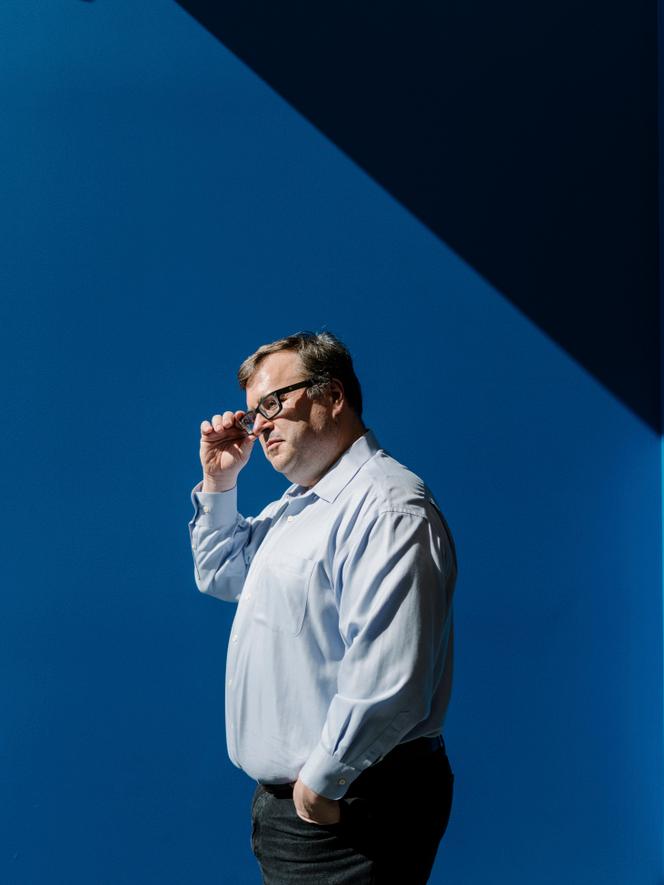


The profile could classically begin with business: At 56, Reid Hoffman is a member of the "PayPal mafia," the nickname given to those Silicon Valley wunderkinds who, together with Elon Musk and Peter Thiel, founded the payment company and made the American tech world a success in the 2000s. Co-founder of LinkedIn in 2002, investor in the early days of Facebook and Airbnb and former board member of artificial intelligence (AI) company OpenAI, Hoffman heads a fortune estimated by Forbes magazine at $2.5 billion. We could continue with politics: Unlike his fellow libertarians Musk and Thiel, who have tilted to the far right, Hoffman is a Democrat, who is doing everything to fight Donald Trump's second term: He contributed – in vain – to the campaign of his primary opponent Nikki Haley and funded – successfully – the defamation suit brought by former Elle magazine journalist E. Jean Carroll, who accuses Trump of raping her.
But we chose to start the conversation with philosophy, during an hour-long meeting in a chic hotel in the heart of Manhattan, New York. At a time when artificial intelligence is taking off, Hoffman believes that technology forges generations, and he is one of those who want to go faster. "We invent the steam engine – that's what creates a manufacturing class and a middle class (...) And so no, we don't want to go back to the majority of people being peasants on farms." He added, "And now this generation is growing up with AI. (...) The older generations tend to think, 'Oh my God, it's new, it's alien.' (...) And, the younger generation is like, 'Oh, cool, look what I can do. And look how it changed my life.'"
In a recent speech at the University of Bologna, Europe's oldest, Hoffman likened current times to the Renaissance, evoking a "strong theory of human nature" underlying technology: "We have this technology in our hands – not the other way around. With it, we have the opportunity to amplify and define the future of humanity" Of course, fears are raised. Hollywood was always about "person versus machine," whether it's James Cameron's Terminator (1984), starring Arnold Schwarzenegger, or HAL 9000, the IBM computer in Stanley Kubrick's 2001: A Space Odyssey (1968). In the past, innovation shook things up, like Galileo's telescope or the automobile, which frightened so many that they waved "an orange flag when they were driving." Before the virtues of these initially disturbing advances were exploited.
Hoffman, who in 2023 had fun writing a book with artificial intelligence – Impromptu: Amplifying Our Humanity Through AI – describes himself as a "mystical atheist," as he recognizes many mysteries: "Many of the people who identify themselves as atheists basically say, well, all that there is in the world is Newtonian mechanics. Well, no, the world's clearly more interesting than that. You know, consciousness. We don't understand it." This Californian businessman has followed an eclectic career path that makes him an atypical figure in Silicon Valley.
You have 68% of this article left to read. The rest is for subscribers only.
